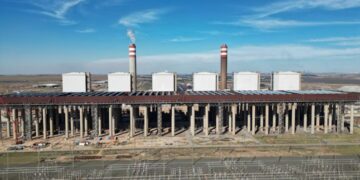By Ebi Kesiena
Several development partners have called for the scale-up of humanitarian aid in counties that are still facing hunger due to the prolonged drought.
This comes on the heels of visit to Turkana County by development partners to assess the situation and possible response measures.
During the visit, the team noted that despite recent rains, the situation of children and families in drought-affected areas of Kenya remains critical.
The group reiterated the need to put in long-term resilience mechanisms to establish a sustainable future for people living in the ASAL region adding that this will be best done in collaboration with county governments.
“Over the last two and a half years, the government of Kenya has responded to the drought and climate crisis in the ASAL counties, to meet the needs of affected families and children,” Miano said.
According to Turkana Governor Jeremiah Lomorukai, his county like others in the ASAL region has been heavily impacted by the drought in recent years.
“Lack of pasture led to massive death of animals that many people rely on for their livelihoods. This has further pushed families into poverty and malnutrition,” Lomorukai said.
Following the visit to the project sites, the development partners joined a round table meeting with national government representatives and the Governors of Turkana, Baringo, Samburu and West Pokot counties.
The discussion focused on the ongoing drought response, the impact of the climate crisis on the inhabitants of arid and semi-arid land (ASAL) counties and the need for sustainable solutions that promote the long-term resilience of affected communities.
UNICEF Representative to Kenya Shaheen Nilofer expressed concern that it will take a year or more for families to recover from the shocks of the livelihoods they have lost and for the nutrition situation of children to stabilize.
“Despite recent rains, the ASAL region of Kenya faces significant development challenges that include climate crisis and conflict, and the situation of children in Turkana remains precarious,” Nilofer said.
She noted that a long-term sustainable and inclusive ASAL engagement strategy is necessary for the enhancement of resilience in affected regions if the country wants to reduce the impact of the climate crisis on the social and economic well-being of people living in the affected regions.
The delegation included ambassadors and senior representatives from the embassies of the Republic of Korea, the Netherlands, Sweden and the United Kingdom, the National Drought Management Authority (NDMA) Baringo, Samburu, Turkana and West Pokot governors and UNICEF Kenya.






































